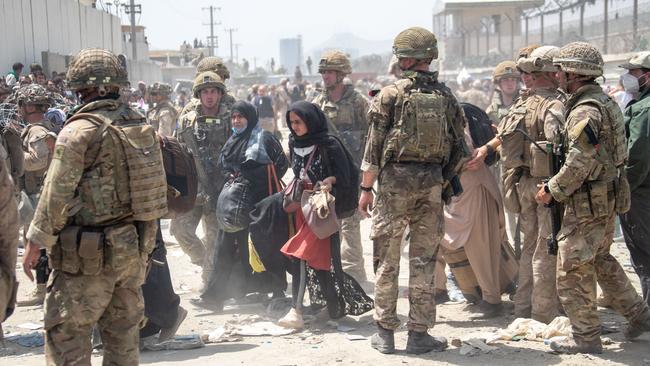
Today’s political leaders and journalists seem perplexed when events throw them off course. Journalists try to hold politicians personally accountable for the impossible-to-foresee. Such was the case with last week’s two big news stories – the return of the Taliban to Kabul, and the escalation of Covid-19 cases in NSW.
The left media went into overdrive about Afghan refugees, demanding to know why Australia would not take more. The right media lamented the final failure of the Afghanistan mission and what it said about American leadership. No doubt a broken US political system is not the beacon of world democracy it once was.
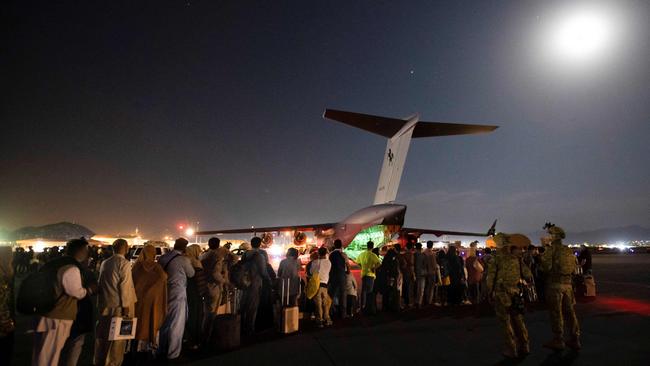
But former prime minister John Howard was correct when talking to Leigh Sales on ABC’s 7.30 on Wednesday night. The Afghanistan mission succeeded in its original aims – to pursue al-Qa’ida and to prevent further terrorism from Afghanistan against the West after the attacks of September 11, 2001. Rebuilding the country in America’s democratic image was not the original strategy even though Coalition forces ended up losing a lot of blood and treasure trying to do just that.
For former Labor leaders such as Kevin Rudd, the conflict in Afghanistan was the “just war’’. They opposed Australian involvement with US forces in Iraq, to which Howard committed a limited force as part of our ANZUS obligations. Reflect on events – 20 years on, Iraq is in a better position than Afghanistan, where the women-hating fundamentalist Islamic cult that blew up hundreds of ancient Buddhas in the late 90s is back in charge.
While conservative commentators lamented President Joe Biden’s failure to secure the country before the withdrawal of US troops, Biden is surely correct when he says it was up to Afghanistan’s leaders and its military to defend their own country. Even Biden’s predecessor, Donald Trump, thought enough Americans had died trying to stabilise Afghanistan when he announced the US withdrawal in February 2020.
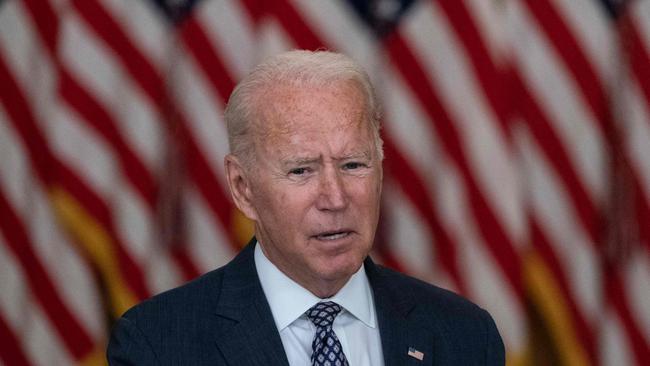
Events can seem unfair. Biden is reaping opprobrium for largely following his predecessor’s Afghanistan strategy. Yet on the pandemic, Biden has reaped all the rewards of his predecessor’s $US2bn ($2.8bn) Operation Warp Speed vaccine procurement program.
Unforeseen events and strategic confusion are also hampering Australia’s Covid-19 battle. Despite the clear road map presented in early August by the Doherty Institute report, which emphasised the need for high vaccination rates ahead of the lifting of restrictions, much of the nation remains focused on virus elimination. Yet our original intention was suppression to protect the health system, rather than elimination.
Several commentators at this newspaper have asked the right question. How will state leaders, whose popularity has been boosted by a fearful public happy with locking down at each single new case of Covid, pursue a “reopening” strategy that presupposes regular cases once vaccination thresholds of 70 and 80 per cent have been reached?
Political and media clarity is needed. Gladys Berejiklian’s main media pursuer, Sky News political editor Andrew Clennell, is correct when he criticises the NSW government’s mixed messaging and insufficiently strong lockdowns – if elimination of the virus is indeed the aim. How can the Premier justify the economic cost of locking down the nation’s largest city if she does not have the will to impose restrictions harsh enough to work? Berejiklian’s talk of relaxing “some restrictions” in late August if the state reaches six million vaccinations no doubt confuses residents of western Sydney hotspots, as the state heads for 1000 cases a day.
Yet events could run in NSW’s favour. The outbreak has sparked intense demand for vaccination. Leading Victorian epidemiologist Catherine Bennett told ABC AM on Thursday that Sydney’s combination of lockdown and fast-rising vaccination levels would contain the city’s outbreak.
With Victoria in its sixth lockdown and Melbourne having been shut for more than 200 days, that city has had the world’s toughest Covid lockdowns but still leads the nation’s death toll with 820, compared with NSW at 114. Neither state could have reasonably foreseen the increased infectiousness of the current Delta strain of Covid.
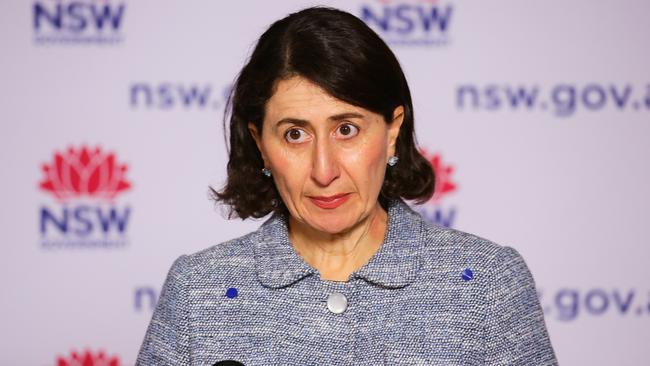
Right now, rising case numbers are certainly a threat to Sydney’s hospital system, whatever you hear from populist media critics of lockdowns. Without Sydney’s lockdown, daily case numbers would already be in the several thousands. But low death rates in the present outbreak show treatment of the sick has improved and vaccination of aged-care residents is protecting many of the elderly. More than 600 of Victoria’s Covid deaths last year were in aged care.
But politicians and media will have to pivot. NSW and federal health authorities looking to lift restrictions will have to be more honest about the risks of Delta. Scare tactics now may help protect the health system by keeping people at home but in the fully vaccinated the risk of hospitalisation, or death, is low.
Health authorities will have to admit Covid remains largely a threat to the elderly, or patients with comorbidities. The vast majority of deaths here are over 80. The average age of all Covid deaths in Australia is 85. Statistics here, in the UK and the US show most deaths involve one or more significant comorbidities.
The UK government last week released a statistical analysis of Covid deaths within 28 days of first infection, across the pandemic. The death rate per 100,000 population for the over-90s was 3988 for women and 5866 for men. The numbers fell sharply at younger age groups. Aged 60-64, the death rate per 100,000 infected was 85.4 (women) and 168.4 (men). At 20-24, it was 0.7 deaths among women for every 100,000 infected; for men, 1.7 deaths per 100,000.
The UK is now open, despite tens of thousands of cases a day. That’s what vaccination offers. When Australia reaches that point, events may not favour leaders who baulk at case numbers rather than severe illness and death. It could be a tough time for the hesitant premiers of WA and Queensland.
Dan Andrews got it right on July 1. Once everybody who wanted to be vaccinated had been, there would be no need for lockdowns, he said. “Then it’s on them if they don’t choose to get vaccinated. We wouldn’t be having lockdowns to protect people who weren’t prepared to protect themselves.”
Journalists looking for certainty in the pandemic should reflect on “events”. Covering them is what we do and they are uncertain. Who knew our ally in the “war on terror”, Pakistan, would end up hiding Osama bin Laden and giving aid to the Taliban? We don’t know the future of the pandemic. Delta might be succeeded by a variant resistant to vaccines.
Nor should journalists expecting Labor to win next year’s federal election feel confident. How will voters feel by then about a Labor Party still wedded to lockdowns? Western Sydney is Labor’s heartland. Its voters are the essential workers that keep the city functioning and they have made it clear over the past two months that they want to work. They have families and mortgages. That’s why they are racing to get vaccinated.




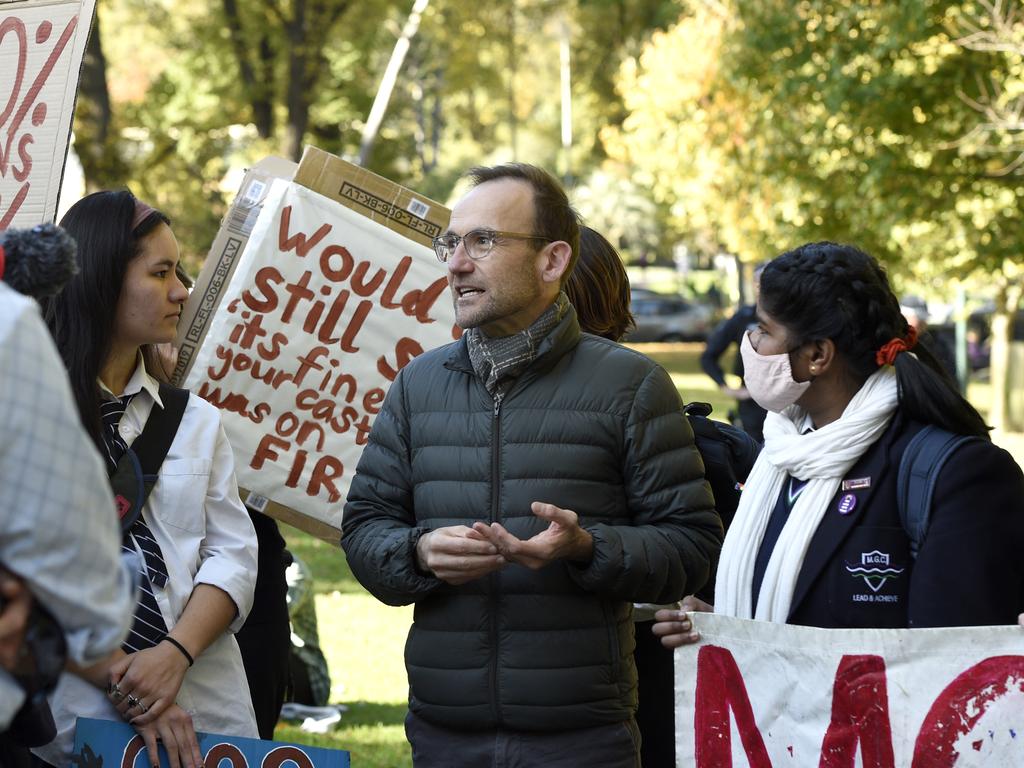
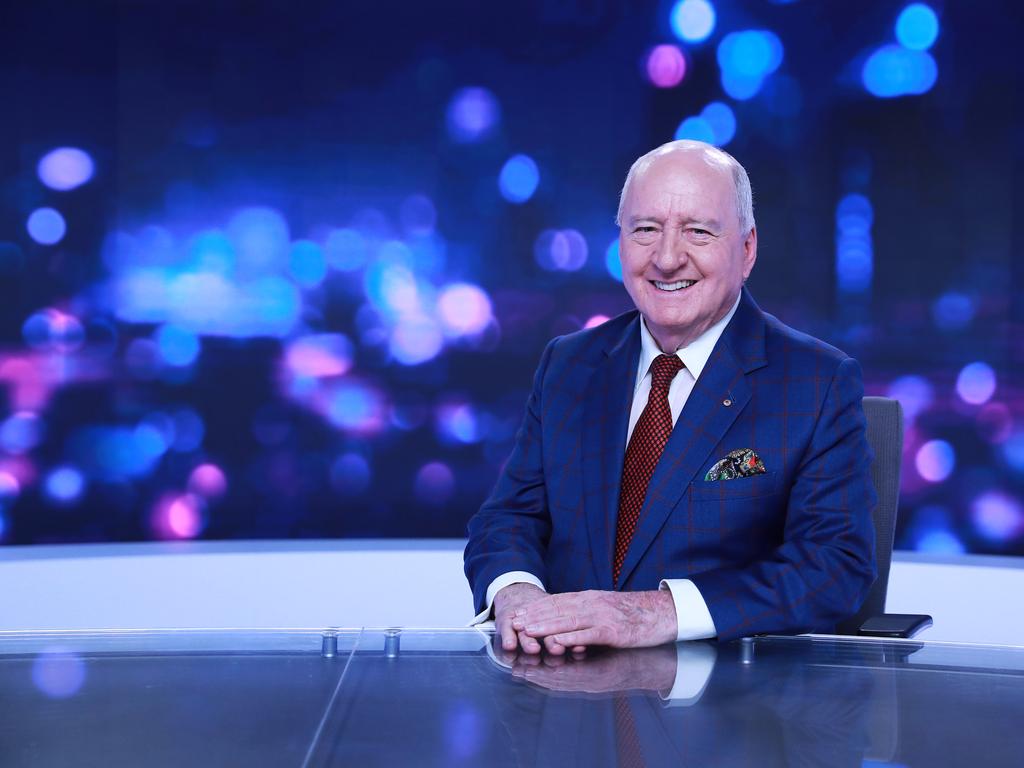


“Events, my dear boy, events,” Harold Macmillan is claimed to have said when asked what worried him during his six-year prime ministership of Britain from 1957.